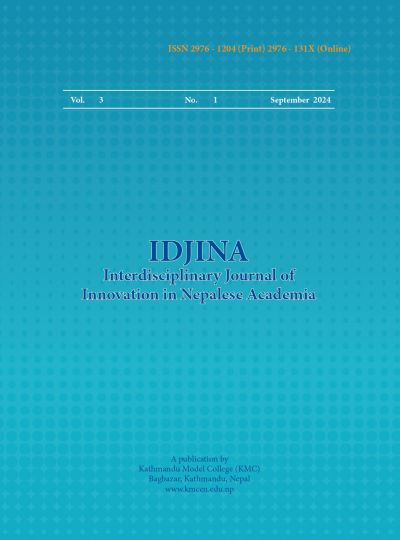Effect of Perceived Workplace Support on Employee Job Performance with the Moderating Role of Self-Efficacy in Nepalese Commercial Banks
Keywords:
Employee job performance, Nepalese commercial banks, perceived workplace support, self-efficacyAbstract
Employee job performance is the important and studied variable in management because of poor performance. This study tries to identify the reason for employees' poor performance from self-efficacy and workplace environment perspectives. In this connection, the present research investigates the interactive role of self-efficacy on perceived workplace support and employee job performance relationships. The ontological assumption of this study was single. A descriptive, causal, and cross-sectional research design was used in this study. Two hundred twenty samples were used for data analysis. SPSS and PROCESS macro software were used to test the hypotheses. The findings indicate that the effect of organizational and technology support on employee job performance is moderated by self-efficacy. On the other hand, the result suggests that the effect of supervisor and peer support on employee job performance is not interacted by self-efficacy. This study has provided the important factors for employee job performance that might help commercial bank to develop the policies and strategies concerning supervisor support, peer support, organizational support for achieving better outcome from the employees and supporting the employees to enhance their self-efficacy.
Downloads
Downloads
Published
How to Cite
Issue
Section
License

This work is licensed under a Creative Commons Attribution-NonCommercial-NoDerivatives 4.0 International License.
This license allows reusers to copy and distribute the material in any medium or format in unadapted form only, for noncommercial purposes only, and only so long as attribution is given to the creator.




